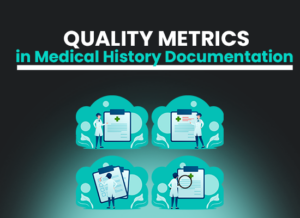Cultural Competency in Medical History Taking
- February 17, 2025

Table of Contents
Key Factors to Consider in Medical History Taking
When taking a patient’s medical history, healthcare providers must consider several key elements that could impact the care they provide. These factors help build trust and ensure that the treatment plan is culturally appropriate. Below are some of the most important considerations to keep in mind.
Try it - Love it - Buy it
Avail Our Free Trial Now!

Language Preferences
- The patient’s preferred language should be understood to avoid communication barriers.
- Misunderstandings can occur when there is no common language or translator available.
- A patient may feel more comfortable when speaking in their native language, improving trust.
- Language differences can affect how symptoms, medications, and treatments are described.
- Using a translator or translation tools ensures accurate communication.
Cultural Beliefs
Cultural beliefs can greatly influence a patient’s views on health and treatment. Different cultures have distinct beliefs about the causes of illness and how best to treat it. It is important for healthcare providers to listen and learn from the patient’s perspective to avoid dismissing their beliefs.
Patients may have strong cultural beliefs about certain diseases or medical conditions. These beliefs can shape their decision to seek care or accept treatment. Healthcare providers should approach these situations with respect and understanding.
Cultural beliefs may also impact how patients feel about medical procedures or medications. In some cases, a healthcare provider might need to adjust their approach to accommodate these beliefs. Listening carefully and offering alternative options can help ensure a positive treatment outcome.
The Impact of Health Practices and Family Dynamics
Health Practices
- Patients may follow specific health practices like certain diets or natural remedies.
- Traditional health practices could complement or sometimes conflict with modern medical treatments.
- Healthcare providers should be aware of these practices to avoid negative interactions with prescribed treatments.
- It’s important to listen to the patient’s health practices without judgment and offer alternative options when necessary.
Family Dynamics
Family dynamics play a crucial role in healthcare decision-making, especially in certain cultures where family members are deeply involved. In some cases, family members may make decisions about the patient’s care rather than the patient themselves. Understanding these dynamics helps healthcare providers respect family roles.
In many cultures, family members are the primary caregivers for the patient. They may have their own health-related practices and views that need to be considered when forming a treatment plan. Taking the time to speak with family members ensures that everyone is on the same page.
Family dynamics can also influence how the patient responds to treatment or healthcare advice. Some patients may be more willing to accept treatment if their family agrees with it. Healthcare providers should work with the family to ensure the treatment plan is understood and supported.
Norms Around Decision-Making and Religion
Decision-Making Norms
- In some cultures, medical decisions may be made collectively by the family rather than the individual patient.
- Elders or community leaders may play a key role in decision-making for healthcare.
- Healthcare providers should respect these norms while ensuring the patient’s needs are considered.
- Understanding the family dynamics and decision-making process helps avoid conflicts and fosters positive communication.
- Decision-making norms may influence how the patient accepts or refuses certain treatments.
Religious Influences
Religion can have a significant impact on a patient’s views about healthcare. Many religious beliefs influence the kinds of treatments patients are willing to accept. For instance, some patients may refuse certain medications or procedures due to religious teachings.
Understanding religious influences is important for healthcare providers when planning treatment. Providers should ask respectful questions about religious beliefs to avoid conflicts during treatment. Patients’ faith may also offer comfort or support during the healing process.
It is crucial for healthcare providers to show respect for religious practices, even if they differ from their own beliefs. When providers understand and support a patient’s religious needs, it can help create a positive and trusting healthcare experience. This can improve overall patient satisfaction and treatment adherence.
Try it - Love it - Buy it
Avail Our Free Trial Now!

Conclusion:
Read More Blogs
See what’s trending in the medical world with our blogs.




